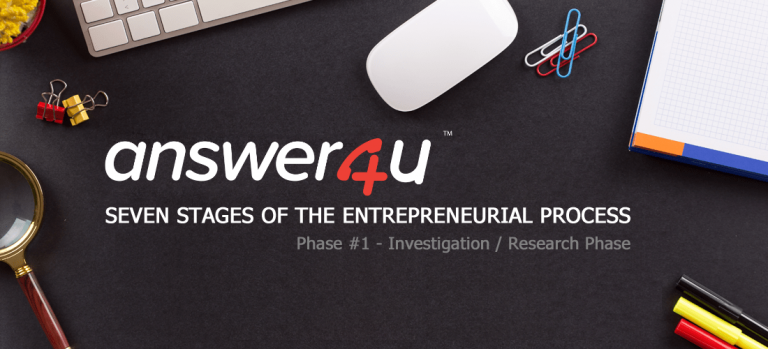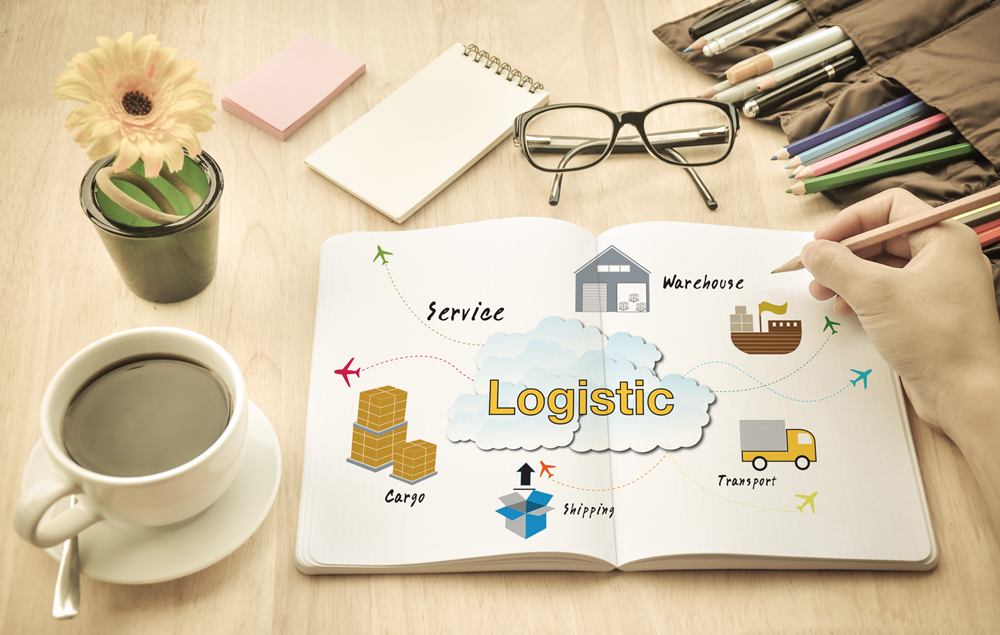
The seven stages of entrepreneurship are a bit like Shakespeare’s celebrated ‘Seven Ages of Man’ from the play As You Like It – but in a world where you get to select the exit strategy of your choice.
While Shakespeare’s text claims all the world is a stage and the men and women merely players, true entrepreneurs are no ‘mere players’; they are the go-getters of this world, who through hard work and commitment make a success of their company – or even serial enterprises.
Entrepreneurship starts with a twinkle in a parent’s eye as they feel the first spark of inspiration, through planning and birth of the new business to growth and consolidation, then handover to the next kindred spirit as the founder sells, transfers or retires.
But successful new businesses don’t just spring out of nowhere and the first phase of entrepreneurship – investigation and research – is perhaps the most important of them all. No matter how convinced you are that your idea is a winner, you first need to validate that belief with some solid background checks.
The most successful entrepreneurs usually identify and fulfil an unmet need or solve a problem. But how do you know that such a need exists, that anyone actually cares about the perceived problem, or that your idea is the right solution? And how can you maximise your chances of making your business a success?
1. Research the Market

Many entrepreneurs get their inspiration from the industry they are working in, or a problem they’ve come across personally. But while an idea might make complete sense to you, you could be surprised at how perceptions vary and what potential customers see as important.
Market research will provide the first evidence of whether you should progress any further with an idea. You need to be certain of the potential size of the market (don’t just presume one even exists), the level of competition and their profitability, the acceptable price point and how you could add value.
Market research methods can include direct contact through interviews, surveys and focus groups or sourcing published data such as the annual business survey by the Office of National Statistics or trading updates from competitors and market reports.
The key is to find out as much as you possibly can about your potential customers, their requirements and expectations, your competitors and the market in general. It’s certainly not an area where you should be skimping, but it does make sense to do what research you can yourself before making the financial commitment of employing a specialist agency to help.
The Marketing Donut has a useful resource section on market research which goes through the process including key dos and don’ts.
If you’re planning to manufacture a new product, try including a prototype in your market research. Even if you can’t manufacture the real thing as a ‘one off’, new developments like 3D printing and digital printing onto a wide range of substrates are opening this area up in an exciting way, making it much more feasible for a company to manufacture a short run of samples for you.
A good place to start is an online search for UK prototype manufacturers, or ask your local Chamber of Commerce about any potential suppliers nearby.
2. Consider the Financials

Whether you’ll be selling a product or a service, it’s crucial at this stage to calculate your costs versus the expected price point indicated by your market research, or you’ll have no idea whether your idea is commercially viable.
The Design Trust, an online business school for designers and makers, has a useful post on how to calculate your cost price which offers food for thought for anyone wanting to sell fairly niche products.
It also serves as a reminder that everyone will need to look at overheads, time spent and professional services when calculating whether or not a business is viable. You’ll need to work on this in more detail in phase two of the entrepreneurial process (planning), but a top line calculation at this stage is essential. Estimate your costs – remembering to factor in your own time and calculate your expected revenue, your breakeven point and how much investment you’ll need to get there.
3. Consider your Manufacturing and Delivery Options

If you’re planning on selling a product, you need to carefully research the options for manufacture and logistics. If you’ve had a prototype made, your supplier should have some useful manufacturing links, or you could talk to your local Chamber of Commerce. Consider whether you want to keep your manufacturing within the UK – some people prefer to buy local products – or whether you’d be happy to look abroad.
If you know where your business will be based, investigate storage facilities in the local area if needed so you can add in those costs. Also consider whether your company will be local or national, what delivery options you’ll need to offer and how you will fulfil the orders. You may even want to think about taking on a distribution company as a partner.
Remember to also consider staffing requirements, including the new workplace pension and other costs related to employing a team. Take a look at this guide from the UK government on employing staff for the first time.
Thinking about recruitment, see if you can find a specialist agency for either your local area or specific industry, dependant on your needs. Or if you’re planning to go it alone for a while, consider what you would do if you were ever off sick for any length of time or wanted to take a well-deserved holiday. You will need to do more in-depth planning in phase two, but it’s worth looking at potential issues early on.
4. Have Legal and Professional Issues on Your Radar

When starting a new business there are all sorts of legal and professional issues to consider and it helps to have an idea from the start about what you’ll need to put in place.
The UK government has some useful online guides including the various options for a legal structure, and how to protect your intellectual property.
The British Chambers of Commerce website also details the business support services it offers to members.
So, once you know everything there is to know – as far as you know – and you still believe your idea can become a success, it’s time to move on to phase two, where you get into the real nitty gritty. The "planning phase" is no longer a paper exercise, it’s where you need to put all the elements in place to secure a successful launch.
Save
Categories
- 24 Hour Call Answering Service (6)
- After Hours Call Answering (5)
- After-Hours Call Answering Service (6)
- Answer-4u (11)
- Artificial Intelligence (4)
- BPO (5)
- Business (66)
- Business Grants (3)
- Business Growth (4)
- Business Owner (6)
- Business Strategy (2)
- Call Diversion (6)
- Call Handling Service (13)
- Charity (2)
- Christmas (6)
- Customer Experience (5)
- Customer Satisfaction (3)
- Customer Service (24)
- Customer Services (8)
- Decision Making (3)
- Diary Management (3)
- Digital Marketing (16)
- Disaster Recovery (5)
- EntrepPhase (7)
- Entrepreneurs (7)
- Finance (2)
- Funding (3)
- HR (6)
- Inspiration (2)
- Leadership (4)
- Marketing (15)
- Marketing Strategy (2)
- Networking (2)
- Other (4)
- Outsourcing (14)
- Phone Etiquette (9)
- Productivity (6)
- Property Management (3)
- Recruitment (7)
- Self Improvement (2)
- Small Business (14)
- SME (4)
- Staff Training (2)
- Start-Up (9)
- Technology (3)
- Telephone Answering (15)
- Time Management (4)
- Virtual Assistant (3)
- Virtual Receptionist (12)
- Workforce (9)
- Working Environment (9)
- Workplace (28)





